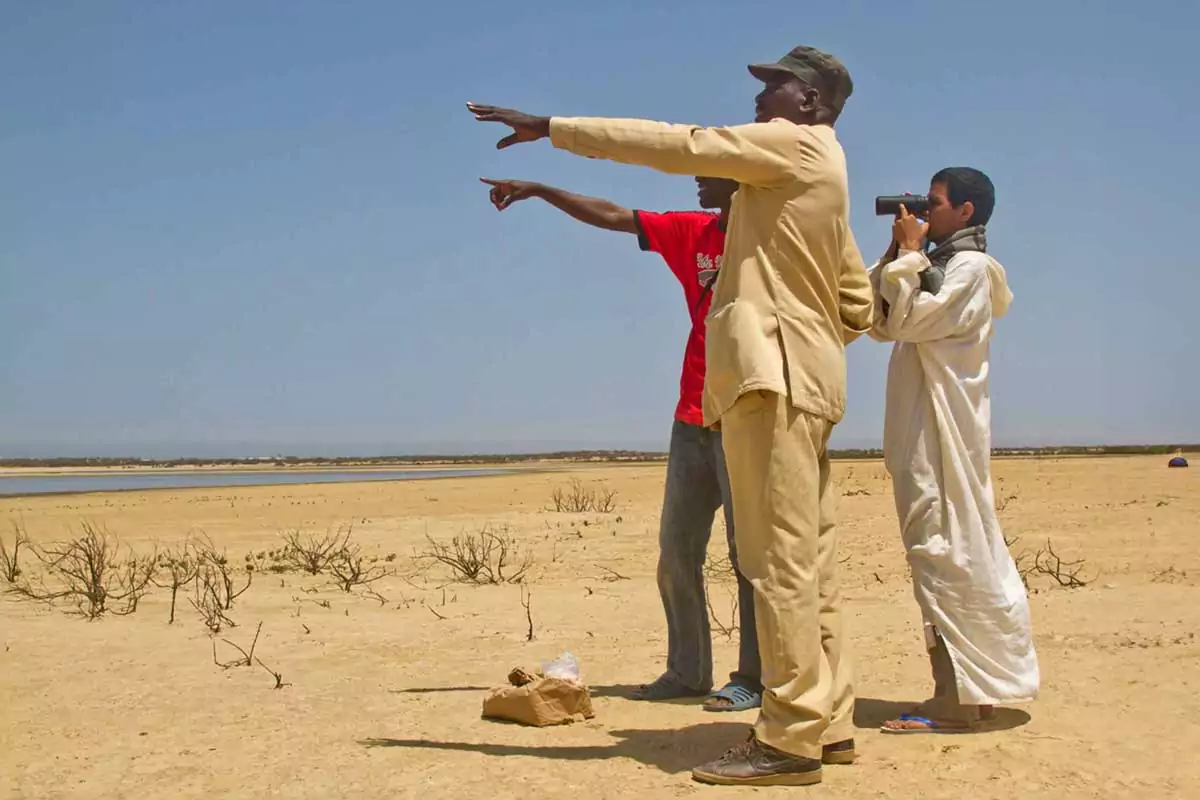The MeerWissen Initiative organized an interactive session on “Effective marine and coastal conservation in Africa through demand-driven marine research, international partnerships and improved science-policy exchange“ at the 6th International Marine Conservation Congress (IMCC6). In the context of a focus group the session shared experiences and expertise for improved knowledge generation and science-policy transfer in the field of marine and coastal conservation in Africa.
After a short introduction of the initiative “MeerWissen – African-German Partners for Ocean Knowledge” seven MeerWissen partnerships projects were presented in a so-called vivid “Science-Espresso”. The projects range from sustainable fishing in East Africa and a coastal ecosystem monitoring programme in Cabo Verde to integrated management of the land-sea interface in South Africa and to the mainstreaming of biodiversity protection into the management of the fisheries sector, the Oil & Gas industry and Protected Areas policies in Mauritania.
Effective conservation and sustainable use of African coastal resources from Tanzania and Kenya to the Atlantic upwelling regions were showcased in five best practice examples. They covered ecosystem-based fisheries management, an educational concept for ship-board training, the role of women in climate adaptation policies, blue carbon systems and their contribution to communities and national development plans.
In summary, strengthened alliances between science and political stakeholders as well as the promotion of innovative concepts and ways of cooperation are necessary to bridge the science-policy gap and support implementation of ocean-related SDGs in Africa.
The focus group was organized and co-hosted by Deutsche Gesellschaft für Internationale Zusammenarbeit (GIZ), South African Institute of International Affairs (SAIIA), Leibniz Centre for Tropical Marine Research (ZMT), Helmholtz Centre Geesthacht (HZG) and Senckenberg Gesellschaft für Naturforschung (SGN) – Senckenberg am Meer.
The session took place on 21 August 2020, 11:00-13:00 (UTC)
Please find the agenda here and access the presentation slides below at the corresponding speakers.
Agenda:
11:00 – 11:10
Welcome and introduction to MeerWissen – African-German Partners for Ocean Knowledge (Anke Schneider)
11:10 – 11:25
“MeerWissen-Project Espresso” (each 1 min)
- Supporting sustainable fishing in East Africa-‐ the FIDEA Project (Matthias Wolff)
- Taking the Pulse of the Ocean (Eva-Maria Brodte)
- Seaweed for climate change resilient blue economies, biodiversity and ecosystem services in Senegal and West Africa “the CLIMALG-SN project” (Birgit Quack)
- Developing a coastal ecosystem monitoring programme from scratch – a co-design and co-production showcase from Cabo Verde (Björn Fiedler)
- NeDiT – Data Linking People (Hauke Kegler)
- West African Biodiversity under Pressure (André Freiwald)
- CoastWise – Improving knowledge for integrated management of the land-sea interface in South Africa (Kira Gee)
11:25 – 11:30 Questions
11:30 – 12:25
Best-practice examples (each 8 + 3 min questions)
- Supporting Ecosystems Based Management for Fisheries in Atlantic Upwelling Regions (AtlantOS use case) (Sandra Ketelhake; Abstract; Presentation-Slides)
- Bridging the science-policy gap: mainstreaming blue carbon stock assessments into national development plans at the example of Lamu, Kenya (James Kairo; Abstract; Presentation-Slides)
- From shore to open sea: a vessel size adapted educational concept for ship board training (Eva Brodte; Abstract; Presentation-Slides)
- Strengthening Blue Carbon Ecosystems Conservation and Community Livelihood through Carbon Credit Schemes: Insights from Mikoko Pamoja Community Based Carbon Offsetting Project in Kenya (Gabriel Juma; Abstract; Presentation-Slides)
- Interventions in Gender-Blind Climate Change: Rethinking Climate Adaptation Policies through Women’s Traditional Ecological Knowledge in Tanzania (Betsy Beymer-Farris; Abstract; Presentation-Slides)
12:25 – 12:55
Discussion on Science-Policy Uptake (Moderator: Alex Benkenstein; Presentation Slides)
Scientists are increasingly engaged in supporting policy uptake of their work. Whether this engagement emerges from personal conviction or external pressures, the discussion is increasingly moving beyond whether scientists should be concerned with the policy uptake of their work and instead now focusing on how this can best be achieved. Alex Benkenstein has gotten to the bottom of these questions. He will shortly present his work with a focus on the Western Indian Ocean Region and then facilitate a discussion with all participants on science-policy uptake in Africa.
12:55 – 13:00 Final remarks
Organizers and Co-hosts:
Anke Schneider, Deutsche Gesellschaft für Internationale Zusammenarbeit (GIZ), Bonn, Germany
Hauke Kegler and Hauke Reuter, Leibniz Centre for Tropical Marine Research (ZMT), Bremen, Germany
Matthias Wolff and Paul Tuda, Leibniz Centre for Tropical Marine Research (ZMT), Bremen, Germany
Kira Gee and Andreas Kannen, Helmholtz Centre Geesthacht (HZG), Geesthacht, Germany
André Freiwald, Senckenberg Gesellschaft für Naturforschung (SGN) – Senckenberg am Meer, Wilhelmshaven, Germany

